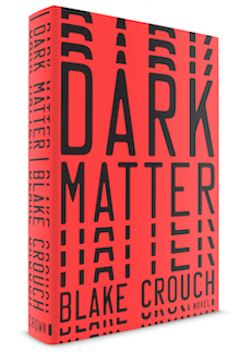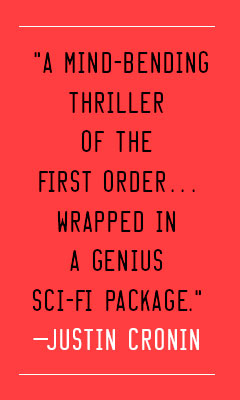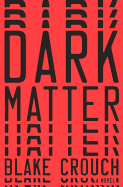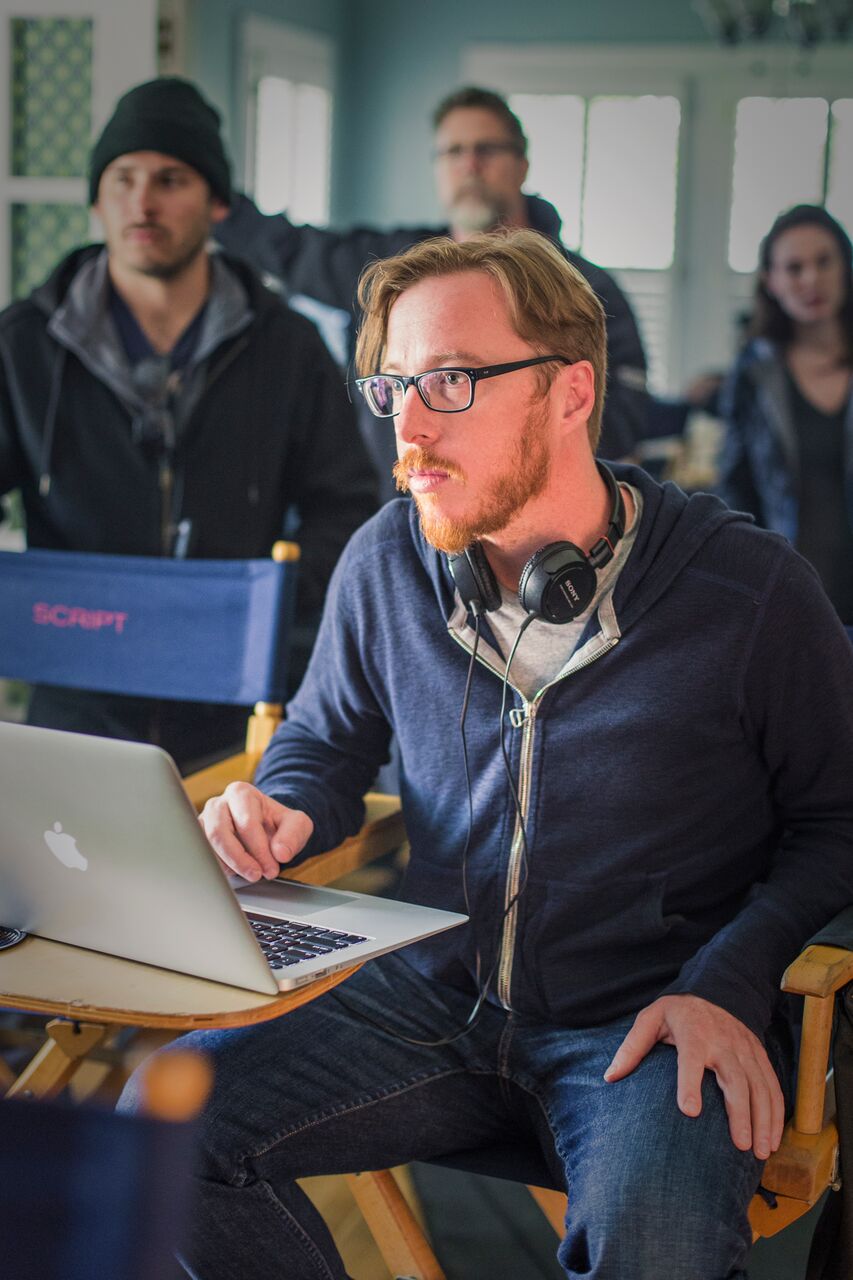Dark Matter
by Blake Crouch
Regret is an emotion that is infinite in its variety, from deciding one would have been better off choosing a different meal at a restaurant to endlessly questioning whether one should have embarked on a certain career or a relationship. While at times regret can simply be a precipitant of nostalgia, a cousin of wistfulness, it can also lead to obsession and terror. Dark Matter dives right into that terror, using a standard trope in science fiction to explore regret's most potent form--the kind that scars, and makes men do brutal things.
After he is kidnapped and drugged, scientist Jason Dessen wakes up in a world that is similar to, but not quite his own. A family man who once gave up a skyrocketing career in quantum physics to get married and raise his son, Jason now finds himself the head of a giant laboratory, in a world where he is living out the dreams he once abandoned. The laboratory has been hard at work for years on a simple-looking metal box, which seems to hold the keys to Jason's new set of circumstances. Unsure whether he is dreaming, or whether something more nefarious has happened, Jason works to uncover just how he ended up where he is, and if he can ever return to his reality.
Blake Crouch, best known as the author of the Wayward Pines trilogy, is no stranger to blending sci-fi and horror, and Dark Matter skillfully takes the concept of "the path not yet chosen" and plumbs it for all its terrifying possibilities. And, much like Wayward Pines, Dark Matter is filled with twists, each one building to something that is both a complete head trip and a perfectly logical progression from the moment Jason is kidnapped. Crouch's previous works in the crime genre also pay off here. The first third of this book feels ripped right from the denouement of a different novel, as if Jason is the damsel in distress for some other book's hero. Luckily for the reader, Dark Matter is rarely that simple.
Although he has a background in physics, Jason is essentially an everyman. A mild-mannered professor at a small college, he is not remotely prepared to deal with what has happened to him. Crouch is smart to have his main character fail early and often, making decisions not out of any sort of tactical advantage or game plan, but simply out of his urge to see his family again. That kind of thinking leads to some terrible mistakes, ones that even at the end of the book remain on his conscience.
That moral thread is an important one, because as inept as he is, Jason is decent. The tragedy embedded in Dark Matter is how Crouch slowly but surely undercuts that decency, as Jason becomes more desperate and clever in order to achieve his goals. Jason never truly breaks bad, but it's clear early on that returning to how things were might never be possible. His intelligence also serves as a double-edged sword, providing him keen insight into his predicament while at the same time complicating matters when he tries too hard to concoct solutions. And as his troubles grow ever more complex, his ability to think a few steps ahead becomes the difference between life or death.
Fans of his work know that Crouch is fond of completely nutso twists that turn his characters' worlds upside down, and won't be entirely shocked by where Jason ends up at the end of Dark Matter. New readers will be drawn irresistibly into the madness. This is intentional, of course. Crouch wants to escalate Jason's situation as much as he can, pushing him into as strange a territory as the narrative will fit. It's a testament to his skill as an author that he can go as far as he does without shattering the book's credibility.
Through it all runs that feeling of regret. Each moment comes with a new decision, a new failure, a new realization that Jason could have done something differently, perhaps better. It nearly destroys him, but also serves as a motivator. He's well aware that he has to make things right, even if he's not entirely sure, in this new world, what right is. The pain of the past mixed with the uncertainty of the future is heady enough stuff for a thriller, and Crouch is right to keep it slightly buried, appearing in glimmers as Jason propels himself forward, looking to find his way back to what he thinks of as reality.
Ultimately, Dark Matter is a rip-roaring novel, providing the reader with ideas and terrifying situations to mull over. At its best, it does what we want science fiction to do: push us into uncomfortable spaces and force us to re-examine our assumptions about our lives. --Noah Cruickshank









